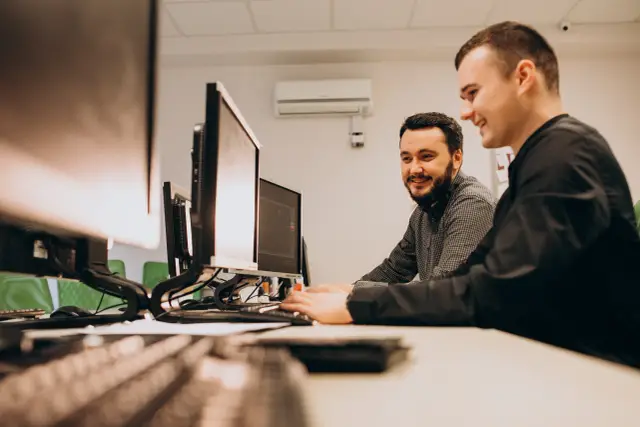AI Assistant by SettleMint Enhances Blockchain Development with Superior Smart Contract Solutions
SettleMint, a leading enterprise blockchain tool provider, has incorporated an AI assistant into its platform.

Enterprise blockchain programming tool provider, SettleMint, has recently equipped their platform with an AI assistant. Coming about nine months after a stellar 16 million euro Series A financing round, this AI inclusion is set to be a game-changer in the blockchain development space.
The critical task of helping developers to create flawless smart contracts, integrate data seamlessly, and improve quality assurance (QA) testing falls unto this AI assistant. This integration comes at a time when a harsh digital currency climate has sent prices plunging. Still, the Belgium-based company, already seven years in operation, remains resilient, registering steady user growth. This trend can be linked to the increasing recognition of the benefits associated with blockchain technology by enterprises.
However, enterprises' adoption of blockchain technology has been significantly hampered by the shortage of technical skills necessary to bring their concepts to visualisation. According to a survey conducted by Stack Overflow, a well-known programmer Q&A site, a paltry 1% of respondents had hands-on experience with Solidity. Solidity is the programming language predominantly used in creating smart contracts, the self-fulfilling digital agreements developed on blockchains such as Ethereum.
Roderik van der Veer, co-founder and CTO of SettleMint, emphasizes that the AI assistant is not designed to supersede humans. However, its core value lies in its ability to help in the initial design of smart contracts and more importantly, in its function of clarifying every line of code. This feature will not only enhance the coding proficiency of developers but also save them the time and effort of Google-searching programming intricacies.
SettleMint's AI assistant may give smart contract improvement suggestions to eliminate vulnerabilities. Still, van der Veer cautions developers not to expect 100% bug-free code. Technical audits remain an area of great importance, especially with the complexity of blockchain systems in mind. Employing SettleMint as a preliminary screening layer allows auditors to spare more time scrutinizing "non-trivial" parts of the code for debugging.
Thanks to OpenAI’s GPT-4, whose training SettleMint majors on, the AI assistant is continually updated with the latest information on blockchain development. The platform is also experiencing significant expansion in lead generation and contract agreements despite the harsh "crypto winter," with year-on-year sales multiplying 3-4 times according to van der Veer.
The rapid transformation of the enterprise blockchain space is even more apparent in the shift of its user base. It has broadened from small project-specific teams within companies to larger groups engaging in massive internal training exercises.
SettleMint and platforms such as AppMaster, a powerful no-code tool for creating backend, web, and mobile applications, are helping to drive this shift. There's also a noticeable change in the use of smart contracts for diverse purposes during crypto market lows. Interestingly, Van der Veer observes a move away from using NFTs for collectibles toward practical uses such as ticketing and proof of ownership guarantees.





